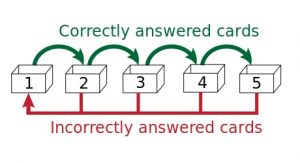This article was inevitable.
Aside from intellectually pursuing women at snooty art galleries & predicting stock market trends à la Bradley Cooper in Limitless, what else would nootropics be used for other than studying?
Due to the numerous health & cognitive advantages of supplementing nootropics, it’s no wonder that more & more overwhelmed students are jumping on the “brain-booster” train.
And, unlike many other popular collegiate…uh, substances… the benefits of nootropics extend far beyond graduation day — helping students to jump-start their careers with sharp mental performance when they enter the workforce (after backpacking around the world, of course).
Academic Mind-Hacking
Despite having their roots in Soviet psychotronic mind control, nootropics ironically allow their users to control their own mind… well, to a degree.
![By D. Sharon Pruitt, owner of Pink Sherbet PhotographyOfficial Website, www.pinksherbet.comContact Email, pink@pinksherbet.comPink Sherbet Photography from Utah, USA (Free College Pathology Student Sleeping) [CC BY 2.0], via Wikimedia Commons](https://supplementsinreview.com/wp-content/uploads/2016/05/Free_College_Pathology_Student_Sleeping_Creative_Commons_6961676525-300x200.jpg)
When you toss in the occasional bouts of anxiety, apathy, fatigue, inattentiveness, brain fog, and so on, they get even… suckier (psh, “grammar”).
Fortunately, nootropics can aid our scholarly pursuits by chemically “hacking” our minds to override the cognitive & psychological deficits that all-too-commonly stand between us and our academic goals.
But before we dive into which nootropics are best of academic mind-hacking, we need to first address the elephant in the room:
Are Nootropics Cheating?
![By Hariadhi, myself (Own work) [GFDL, CC-BY-SA-3.0 or CC BY 2.5], via Wikimedia Commons](https://supplementsinreview.com/wp-content/uploads/2016/05/800px-Cheating.jpg)
Legally, no… However, the question is asked more often through a philosophical lens than a judicial one:
Do nootropics give an unfair advantage to quote-unquote “privileged” students over quote-unquote “unprivileged” students?
They definitely give an advantage, but it’s hard to qualify it as “unfair.”
Through the advent of “Smart Drugs” such as Adderall, Ritalin, Modafinil, Adrafinil, Dexedrine, etc. etc. comparisons have been drawn between the usage of “brain enhancers” in academia and the exploitation of illicit PEDs (steroids, stimulants, etc.) in sport. Yet, the analogy doesn’t quite adhere to nootropics for two main reasons:
- Most nootropics come from (or are at least derivative to) natural dietary sources.
- Nootropics benefit health in addition to performance, whereas smart drugs decrease health as a cost for performance.
Barring nootropics from the classroom not only works to diminish student health, but would also require the barring of nootropic foods such as green tea (source of L-Theanine + ECGC), bananas (source of L-Tyrosine), eggs (source of choline), and numerous brain-healthy herbs—which doesn’t make sense in any scenario, academic and otherwise.
Nootropics for Studying
Due to the varying nature of mental issues, the type of nootropics used by students may vary. However, given the overlapping benefits of many nootropics, it isn’t unlikely that you’ll find one that can aid memory and focus, anxiety and memory, or all three aspects together.
Regardless, we did our best to differentiate the best nootropics for studying based on their primary area of support—Memory, Focus/Energy, & Stress/Anxiety.
Let’s get to it:
Nootropic Memory Aids
Studying and learning are essentially synonymous. You study to learn, you learn to study—and all of this hinges on Memory.
At the forefront of student nootropics are the substances centered on enhancing memory—which typically entail boosting Acetylcholine (Ach) neurotransmitter levels & other neurochemical factors.
It can be argued that the “Focus/Energy” nootropics also aid in memory (which they do) through enhanced concentration, but the nootropics in this list more directly support memory & learning functions—beginning with perhaps the best nootropic for memory in an academic context:
Bacopa Monnieri
![The one and only Brahma riding a goose. By Michael Gunther (Own work) [CC BY-SA 4.0], via Wikimedia Commons](https://supplementsinreview.com/wp-content/uploads/2016/05/Brahma-300x225.jpg)
Today, Bacopa’s time-tested benefits on memory & learning has ranked it as one of the most popular plants for enhancing mental & academic performance. And modern science seems to agree:
- One study found that 300 mg Bacopa daily supplementation for 12 weeks on healthy human volunteers significantly improved various markers of cognition, including speed of visual information processing, rate of learning, memory consolidation, & anxiety state when compared to placebo.
For students, it’s important to note that Bacopa doesn’t necessarily work as an “exam day” nootropic. While, yes, its adaptogenic benefits may help alleviate test anxiety (more on that later), the long-term memory benefits of Bacopa require long-term supplementation to achieve optimum results.
Many users report weeks of Bacopa usage before perceiving its “graceful” effects, so take a chill pill* on the side if you find yourself becoming immediately impatient with this legendary study aid (*metaphorically speaking, of course).
More on Bacopa Monnieri
Pramiracetam

Of the long list of Racetams, the one that has garnered the most attention for aiding memory is Pramiracetam. Compared to Piracetam (the OG Racetam), Pramiracetam is believed to be 30 times more potent, delivering its cognitive benefits much quicker & to a much more noticeable degree. But what are those exact benefits?
- Quicker memory recall. Due to increased production of Acetylcholine & Glutamate—the neurotransmitters most associated with learning & memory. Reportedly, this leads to a “flow state” of mentally processed information, allowing thoughts to move more readily from “mind to mouth” (or mind to paper, if you will).
- Easier learning. Users commonly report that Pramiracetam makes understanding complex concepts & new information less of a task, which is just as pertinent in the classroom as it is late-at-night in the library.
- Long-term memory consolidation. Interestingly, pre-clinical research suggests that Pramiracetam might enhance neuroplasticity in the hippocampus—the “seahorse”-shaped segment of brain responsible for memory consolidation and stress-response inhibition.
While the Racetam design bears a lower toxicity profile than caffeine & salt, one downside to this nootropic class is its slightly overbearing demands for increased Ach production. If there isn’t enough choline readily available for the brain to turn into Ach, this can lead to a mental crash—which is why the next “cholinergic” nootropic is often used in conjunction with Racetams.
Citicoline
One of the best (if not the best) nootropic available is Citicoline (otherwise known as CDP Choline), which actively participates in the biosynthesis of important brain phospholipids and, yes, Acetylcholine. Due to its immediate effects on cognition & concentration, Citicoline easily qualifies for the following section (Nootropic Focus/Energy Boosts), but we’re placing it here for its long-term benefits on memory & overall brain health.
As we previously mentioned, Citicoline works well when stacked with Ach-promoting nootropics such as Pramiracetam—yet, even as a standalone substance, Citicoline boasts a huge range of brain benefits, including enhanced brain energy, optimized neurotransmitters, rejuvenated neural connectivity, & increased cerebral circulation.
While Citicoline is sold OTC in the U.S. & Canada, the rest of the world largely prescribes it as Cognizin® for memory & cognitive impairments. However, this isn’t a nootropic to wait for until the “damage” has already been done as its additional neuroprotective benefits show a lot of clinical potential in preparing the brain against the inevitable age-related cognitive losses we all must endure long after graduation.
More on Citicoline.
Ginkgo Biloba
![elmikamino [CC BY-SA 2.1 jp], via Wikimedia Commons](https://supplementsinreview.com/wp-content/uploads/2016/05/Ginkgo_biloba_-Hokkaidō_01-300x225.jpg)
The primary role on Ginkgo Biloba’s resume: Vasodilation. Ginkgo’s brain benefits are largely attributed to its ability to enhance cardio-circulation via modulating blood vessels. The increased blood flow not only supports the body’s extremities, but quickly sharpens cognition by supplying the brain with lots of nourishing oxygen, glucose, and important neuro-nutrients.
Again, this nootropic certainly qualifies for the next segment of brain boosters (“Nootropic Focus/Energy Boosts”), but its common association with enhanced short-term (working) memory earns it a spot here. Admittedly, the “type” of memory associated with Ginkgo is very narrow & specific, but the advantage of boosted working memory after only two days of 120 mg dosaging is undoubtedly relevant in academia.
Unlike Citicoline, Ginkgo doesn’t seem as effective in long-term brain support, but its fast-acting circulatory boosts on cognition are well worth the investment (and transition rather nicely into the next section… it’s almost like we planned that or something).
More on Ginkgo Biloba
Nootropic Focus/Energy Boosts
Substituting Adderall, Ritalin, and every other prescription stimulants that’s running rampant in the high-level academic world are these energizing nootropics that not only “wake up” the mind, but provide fast-acting cerebral support.
Caffeine + L-Theanine

This is perhaps your healthiest “all-nighter” option (even though all-nighters are incredibly unhealthy, inadvisable, you need your sleep, all 8 hours of it, and you shouldn’t be putting your work off ‘til last minute like that anyways and yada yack nit pick hee haw…).
If you haven’t heard of Caffeine, it’s that buzz-drug found in stimulating substances such as coffee, cocoa, tea, soda, energy drinks, etc. etc. Because its sole benefit is cheap mind stimulation, Caffeine doesn’t qualify as a true nootropic—on its own it does nothing for brain health… which is why we prefer the combination of Caffeine with the calming, brain-healthy L-Theanine.
Unlike coffee, green tea’s caffeinated buzz won’t have you tweaking out because it also serves a sizable dose of L-Theanine to reduce caffeine’s jitters while maintaining its focus. What’s more, the complementary duo also balances brain chemicals, protects brain cells, & modulates alpha brainwaves (the “creativity” brainwaves).
Odds are, if you’re a student, you’re receiving enough caffeine as is. Supplementing an additional L-Theanine source can help you transform that buzzing energy into a “relaxed” focus—boosting your productivity and giving you a better chance of (maybe) catching a few zzz’s in the end, too!
More on Caffeine & L-Theanine.
Vinpocetine + Huperzine-A + ALCAR
Individually, these ingredients benefit the mind through diverse mechanisms:
- Vinpocetine increases cerebral oxygen, ATP concentrations, & Ach activity in neurons.
- Huperzine-A inhibits AchE(Acetylcholine-killing enzyme), resulting in more memory enhancing Ach levels.
- Acetyl-L-Carnitine primes brain cell mitochondria, delivering an immediate charge of brain power.
The Vinpocetine + Huperzine-A duo complements Ginkgo Biloba very well for its enhanced cognition via boosted cerebral blood flow. Many Adderall alternatives use this combo for its suppression of ADHD-like detriments—the memory boosts are a bonus.
Combined, Vinpocetine + Huperzine-A + ALCAR was found in 30-day double-blind, placebo-controlled study to benefit cognition & mood, as well as improve the initial stages of mentally processing & retrieving information. All ingredients serve potent study aid potential—combining them optimizes their individual effects.
More on Vinpocetine & Huperzine-A & ALCAR
Pycnogenol (Pine Bark Extract)

Another popular anti-ADHD compound, Pycnogenol® is the U.S. registered form of this French maritime pine bark extracted cognitive enhancer. Initially introduced to the U.S. mainstream by Dr. Oz as a “wrinkle-reducer,” Pycnogenol seems to offer a multitude of health benefits ranging from inhibition of inflammatory mediators to promotion of female & male sexual function.
However, its particular effects on cognition (noted in a randomized, double-blind, placebo-controlled study) include:
- Reduced hyperactivity
- Enhanced focus & concentration
- Improved visual-motoric coordination
Over 300+ studies on Pycnogenol have reported zero adverse effects and zero ingredient interactions with a toxicity rating of “generally recognized as safe” (GRAS). Due to this, expect to find more & more health supplements utilizing this pinasterous pine extract of the maritime Pinus pinaster.
Pycnogenol is a great branded supplement that has undergone a ton of research, but it can be expensive. If you’re on a student’s budget, plain Pine Bark Extract is available, too: It’s cheaper, but not quite as high-quality as the good stuff.
N-Acetyl-L-Tyrosine

If you’re consuming L-Tyrosine naturally, odds are you’re either a meat & cheese enthusiast or an avid energy-drink… drinker. The problem with these sources of Tyrosine is that they also come with loads of saturated fats & brain-diminishing rounds of processed sugar. Yet, the amino acid’s purported benefits on mental focus & attention (particularly under conditions of stress and/or sleep deprivation) make it a valuable compound among students.
Admittedly, the effectiveness of L-Tyrosine on cognition can vary fairly significantly based on stress levels & neurotransmitter status. One review noted that both clinical & recreational administrations of L-Tyrosine seemed to primarily benefit users who were undergoing” short-term stressful and/or cognitively demanding situations” and had diminished neurotransmitter levels of dopamine & norepinephrine.
With that in mind, L-Tyrosine doesn’t work as an everyday study aid, but rather as an “as-needed” boost on focus & concentration. Go for the N-Acetyl-L-Tyrosine (NALT) form of Tyrosine: It’s shown to be more effective for cognitive performance.
More on N-Acetyl-L-Tyrosine.
Nootropic Anxiety Reducers
We’ve already covered 3 nootropics that boost brainpower in many ways, and also help anxiety: N-Acetyl-L-Tyrosine increases focus & concentration under stressful conditions; L-Theanine is promotes calm alertness; and Bacopa eases anxiety without sedation.
For this section we’re tacking on 3 more nootropics that are “adaptogenic” herbs, known to directly relieve the physical & psychological pressures of stress.
Consider these your “holy-sh**-it’s-test-day” nerve soothers.
Ashwagandha
![By Vinayaraj (Own work) [CC BY-SA 4.0], via Wikimedia Commons](https://supplementsinreview.com/wp-content/uploads/2016/05/Withania_somnifera_03-300x218.jpg)
As an indirect nootropic, Ashwagandha aids the mind by reducing anxiety and fatigue related to anxiety, showing clinical benefits on executive functions, working memory, attention, processing speed, & memory.
Rhodiola Rosea
One of the pioneer herbs in adaptogenic research, Rhodiola Rosea has an exciting history in USSR history as a “secret weapon” botanical used behind the Iron Curtain to enhance mental & physical performance of Soviet cosmonauts, Olympic athletes, chess players, soldiers, politicians, workers, & the researchers themselves.
Rhodiola’s particular adaptogenesis seems more tailored for athletic performance, but its use in academia is warranted for its optimization of serotonin & dopamine—aiding in the mental aspects of mood & motivation.
Depending on extract quality & dosage, Rhodiola’s brain power bioactivities can work in as little as 30 minutes and last as long as 6 hours.
Panax Ginseng

Traditional Chinese Medicine’s contribution to the growing list of adaptogens Panax Ginseng rounds off this short list of adaptogenic herbs that may remedy test day anxiety. Due to its potent strength-giving, rejuvenating powers and its vaguely human shape, Ginseng became a powerful symbol of herbal divinity since its discovery in the mountains of Manchuria, China over 5000 years ago.
The active ingredients of Panax Ginseng, tetracyclic triterpenoid saponins (ginsenosides), have been studied for a series of health effects ranging from enhanced physical (& sexual) performance to increased resistance against physical & chemical stress. Similar to Rhodiola, Ginseng seems to benefit both athletes & academicians alike.
Non-Nootropic Mind-Hacks
Not all solutions are pharmacological, nor are all pharmacological solutions the best solutions. Typically, nootropics are only supplementary to a healthy lifestyle—without which to work on, nootropics wouldn’t be worth jack.
With that in mind, here are a few helpful lifestyle mind “tricks” for you to get the most out of your studious nootropic stacks.
Spaced Repetition
As opposed to the “binge & purge” style of learning practiced by many students, Spaced Repetition operates through the gradual exposure of information snippets over time—promoting the long-term retention of information through repetition rather than the quick temporary acquisition & release of an entire topic.

And the concept of spaced repetition on learning isn’t new, dating back to Cecil Alec Mace’s 1932 book Psychology of Study:
“Perhaps the most important discoveries are those which relate to the appropriate distribution of the periods of study… Acts of revision should be spaced in gradually increasing intervals, roughly intervals of one day, two days, four days, eight days, and so on.”
The idea is fairly intuitive: If you exercise for 30 minutes Monday through Friday, rather than 2.5 hours once a week, you’re going to achieve better, long-term results. The same principle applies to studying.
Cardio & Fats
Usually these words are written in opposition—yet, here their combined usage marks one of the most important aspects of Exercise & Diet when it comes to optimizing brain health.
Aside from taking a mallet to the head, the easiest way to “break” your mind is physical sedation. No activity, movement, or exercise promote an oxy-moronic state of lethargic anxiety that borders on ADHD levels of inattentiveness—the remedy, of course, being activity, movement, and exercise. Even a simple 30 minutes of cardio or resistance training has shown immediate benefits on memory.
Adding a mixture of brain-healthy Omega-3 fatty acids satisfies the second half of the equation:
- In addition to supporting all-around brain structure, essential fatty acid administration was shown in a study to improve behavior variables associated with anxiety—“i.e. appetite, mood, mental concentration, fatigue, academic organization, and poor sleep, as well as lowering elevated cortisol levels.”
Incorporating a little bit of exercise & fatty acids into your lifestyle routine can go a long way in terms of academic performance, health, & happiness.
Write Drunk. Edit Sober.

Okay, not really… but there’s some truth in this Peter De Vries’ quote (that’s often misattributed to the permadrunk legend Ernest Hemingway).
The benefit of writing “drunk” then editing “sober” is that you’re removed of the fear of failure that comes with beginning an assignment. When you metaphorically “inebriate” your mind into a free-flowing state, you leave room for both brilliance and error. You can filter out the latter later, and ultimately learn from those mistakes—that’s sort of the point of this whole “studying” thing, right?
The uninhibited approach to studying (namely when “studying” means “writing essays”) works best on creativity-dependent assignments—especially if you’re practicing “spaced repetition” to allow yourself the time for mistakes & learning.
But by no means are we advocating boozing on your studies. That type of “mind-hack” will most likely leave your memory impaired & your liver… dead… which is no way to go about getting an education (with the exception of English majors, of course).
Conclusion
If you’re new to nootropics, as so many curious students are, then this all might seem overwhelming. But before you retreat back into the familiar jittery comfort of coffee, note that the advantages of such caffeinated/”Smart Drug” stimulants are only temporary—and not without their lists of side effects.
Nootropics’ benefits on the other hand are long-term and side-effect free.
In the scholastic category of nutrition, nootropics just make sense. And if you play your cards right, then you may even save money in the long run by replacing caffeine with these nootropics.
For a more in-depth look at a big list of nootropics, including others that may help with academic activities, click here & enjoy.

Leave a Reply